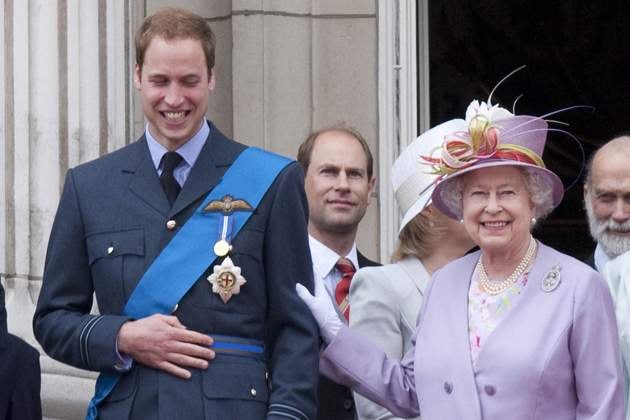
It might be fiscally best for those writing a will to pass it all on to their grandchildren says Arabella Murphy – as long as the middle generation don’t mind…
According to MP Gavin Barwell, pensioners should ‘disinherit their children and instead leave their homes and wealth to their grandchildren, to help young people to get onto the property ladder’. He disclosed that his own mother plans to leave her £700,000 Croydon home (and other assets) to her grandchildren, bypassing him and his brother.
This proposition could have some inheritance tax advantages for grandchildren. Let’s take an imaginary testatrix with two sons and call her Granny: if her total estate is worth £1 million, then £270,000 will currently go to inheritance tax, no matter who (other than her spouse or charities) she might leave it to. It follows that, if her sons each received a net £365,000, one day inheritance tax would also be payable on that, before it reached the grandchildren – if it didn’t grow at all, and tax rates didn’t change, at least £16,000 would be payable by each son’s estate on his death. So, passing it to the grandchildren should save at least £32,000 in tax.
Interestingly, in the US, politicians recognised and legislated against this advantage in the 1970s, imposing a ‘generation-skipping tax’ on anything previously inherited by the grandchildren, payable on the death of the parent who ought otherwise to have benefited from it. Happily, the UK doesn’t have an equivalent rule, leaving Granny at liberty to spoil her grandchildren if she wishes to do so – indeed, one new inheritance tax measure positively encourages this.
Over the next few years, the inheritance tax advantage of such a gift will change, as the ‘main residence nil-rate band’ is phased in. So long as Granny’s total estate is worth less than £2 million, and her house is worth £1 million or less, she will qualify for up to a further £175,000 tax-free allowance, on top of the £325,000 tax-free sum (the nil-rate band) available to every estate. The tax bill on a notional £1 million estate should therefore be reduced to £200,000 (from April 2020). The condition is that Granny must leave her main residence to a direct descendant – but it doesn’t have to be the next generation.
The minister’s idea is sensible and thought-provoking, as well as being good tax planning for families who can afford it. For some in Granny’s position, however, it might be deeply impolitic to pass the money to the grandchildren, at the very point when her own children are just finishing paying the school fees and the mortgage, and wondering what they will retire on.
As always, the best advice for anyone in Granny’s position is to talk about it with your children, or at least think it through very carefully. If you unilaterally decide that your grandchildren are the most deserving of your largesse, you may cause disharmony in your own family. Your bequest may inadvertently make your grandchildren better off than the parents who have just done without 18 years of holidays to pay for their education.
This could be fortuitous: tax planning and an opportunity to limit the resources available to your gold-digging daughter-in-law. On the other hand, young grandson Tom might decide that a few years’ ‘sabbatical’ in Goa, or a fast car, is preferable to buying a home or a pension, or completing his degree. Perhaps a gift to the dogs’ home instead? But even that might be open to challenge, as in the recent Ilott case, where the Court found a mother did have a moral obligation to leave some money to her adult daughter who lived in social housing.
Ultimately, don’t forget the UK still allows families to do a deed of variation. For two years after a person’s death, the adult beneficiaries of their will can opt to divert part, or all, of their own gifts to other family members (or to charity), if the original recipient doesn’t need the money or it makes better financial planning sense. Perhaps Granny won’t need to change her will after all: she can leave it to her children, but urge them to pass on what they don’t need.
Arabella Murphy is a partner at boutique private wealth law firm Maurice Turnor Gardner LLP.






